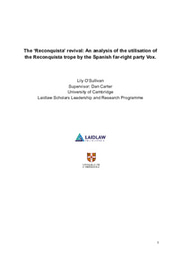LIA summary - my time in Fiji with femLink Pacific
In 2025, Fiji ranked 126th out of 146 countries for gender equality (according to the World Economic Forum) with less than 10% of parliamentary seats occupied by women. FemLink Pacific seeks to address the problem of gender inequality in a variety of ways. Their radio station, suitcase radios, and Women’s Weather Watch seek to spread vital information and feminist discussion in an accessible way for women across the country. They conduct research and publish policy documents advocating for change to improve the lives of women. They also conduct regional convenings to bring rural female community leaders together to discuss challenges women face (and how to address them) with respect to issues such as land ownership, health and wellbeing, and economic stability. They provide a platform for women to share their experiences, challenges, and solutions, fostering a sense of agency and representation. By documenting and broadcasting women's stories, their publication Community Radio Times contributes to policy discussions on gender equality, peacebuilding, and social justice.
My LIA project was split into two halves. For the first, I worked with the media and broadcast team, utilising my experience in student journalism and expanding my interest in the importance of accessible and accurate information. This also involved being thrown in at the deep end one Monday morning, when I was told that I would be presenting the 10 o’clock news live with 10 minutes warning! Thankfully the fantastic team of broadcasters taught me lots during my time working with them. FemTalk 89 FM, the organization's own radio station, broadcasts local, national, regional and international news centred on the United Nations Security Pillars. I worked selecting relevant stories from reliable new sources and editing them into bite size segments for the hourly news. I also presented their Women’s Weather Watch, a crucial community weather initiative that acts as an early warning system for adverse weather conditions across Fiji. I ran the social media accounts, producing posts for Instagram, Facebook, and LinkedIn, with the aims of increasing visibility of the charity (for stakeholders and donors) as well as raising awareness of their sister charities’ activities and international dates.
After learning the foundations of interview preparation, recording, and editing through being interviewed about my Laidlaw experience and my stay in Fiji, it was time to sit in the interviewer’s chair. I conducted and edited an interview with a participant in Fiji’s 2024 Women’s Mock Parliament about the importance of women in politics and temporary special measures such as gender representation quotas.
Finally, I was able to write articles for the organisation’s own magazine, Community Radio Times, celebrating their work over the last three months and the collaborative events they have been involved in. I also wrote an article about two inspiring women who had received small business grants from the United Nations Women’s Resilience to Disasters. These had allowed them to expand their small food businesses, plant crops, and buy chickens, as well as help vulnerable members of their communities. These stories of female entrepreneurs showcase the adaptability, resilience, and determination of women in Fiji, and the transformative power of femLink’s training and support. Midway through my project I participated in training on Monitoring, Evaluation, Learning and Data Collection Tools delivered by the International Women’s Development Agency. We learnt how to conduct in-depth interviews, focus group discussions, and pre and post activity assessments.
In the second half of my project I acted as a research assistant working on an ongoing project in partnership with the International Foundation for Electoral Systems. With the long term goal of increasing women in leadership positions in Fiji, at both the national and municipal levels, this project encompassed a research survey, training of interested women candidates and lobbying of political parties to commit to gender equality frameworks. I was able to create a survey to collect data on barriers and opportunities for women to stand as candidates in elections. I compiled a research report into the gender equality commitments of Fiji’s political parties, and also acted as a research advisor to femLink’s staff, producing a draft of the eventual report.

Please sign in
If you are a registered user on Laidlaw Scholars Network, please sign in